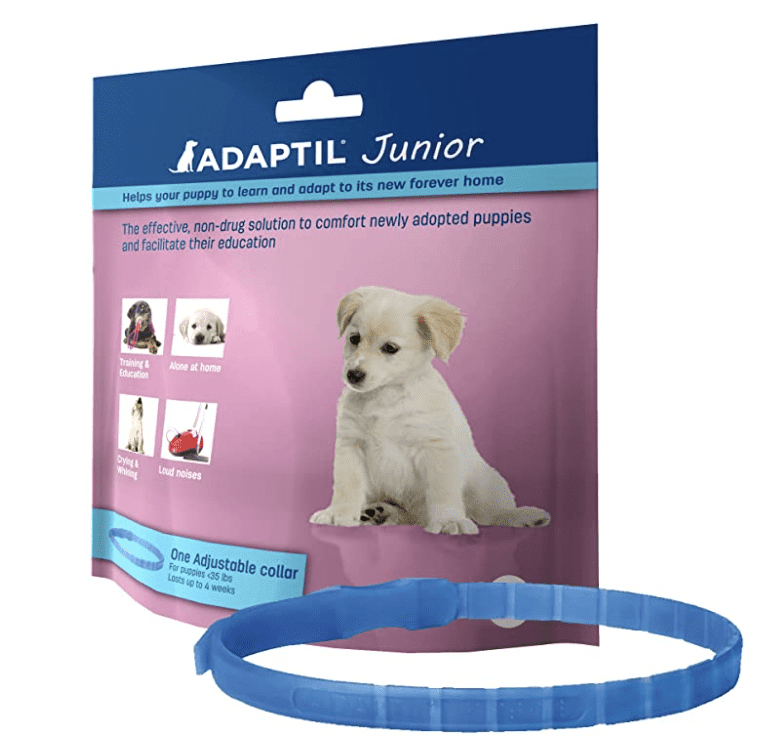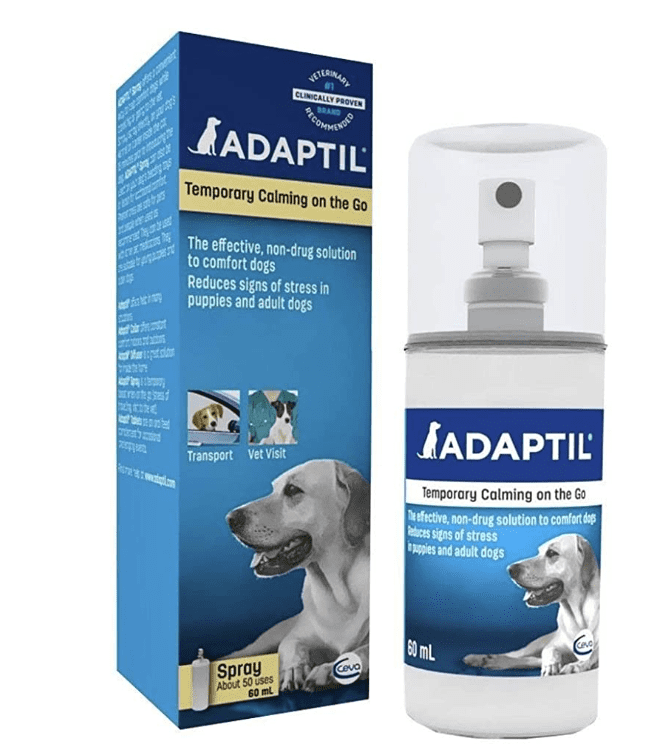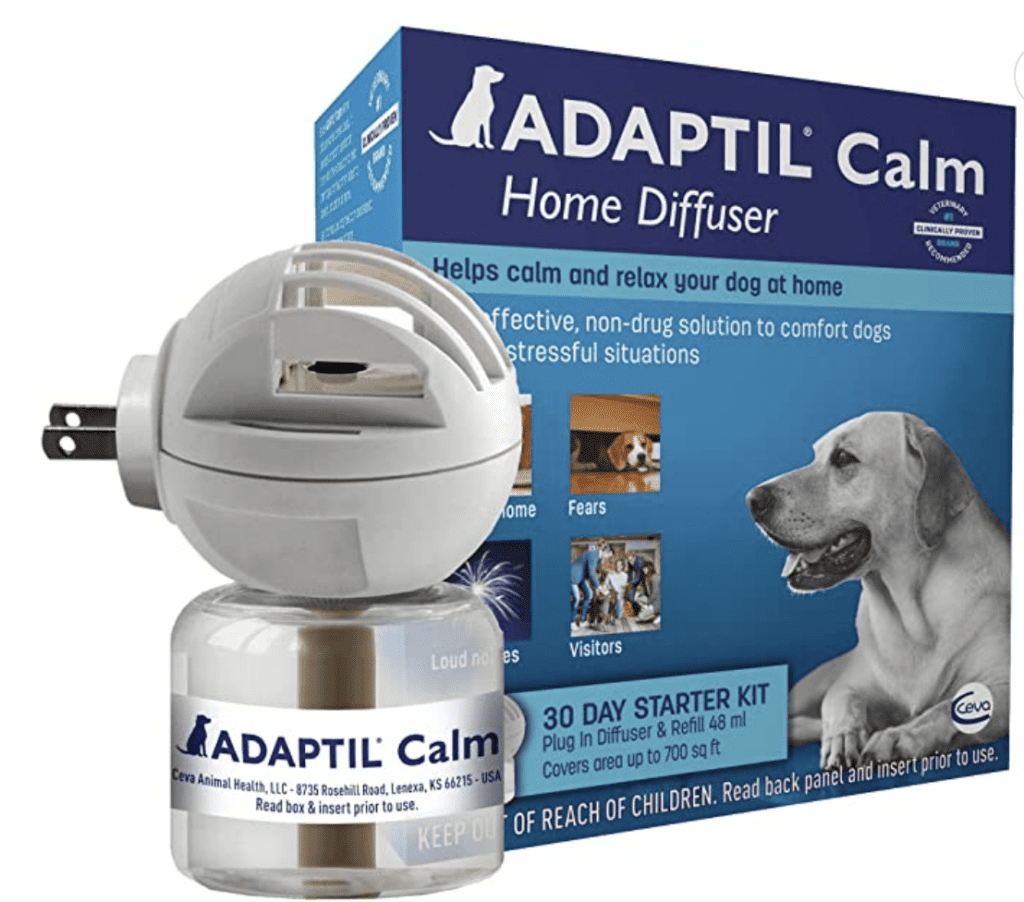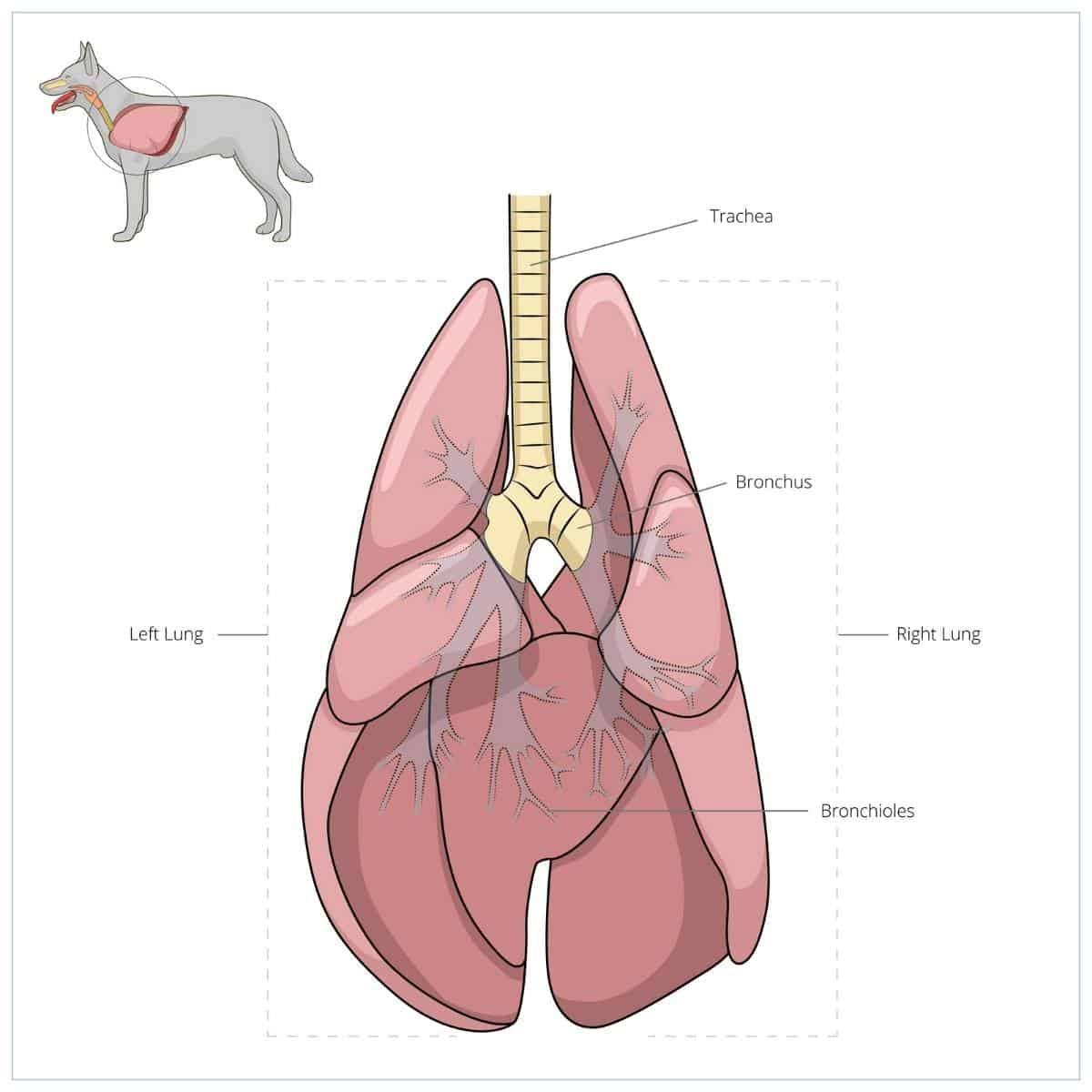Can Dogs Take Phenergan? Yes, but read this first!
Wondering if it’s safe for your dog to take Phenergan or promethazine? The short answer is yes, read on to find out why, the correct dosage, and the side effects.

This post may contain affiliate links. That means if you click and buy, I may receive a small commission. Please see my full disclosure policy for details.
Phenergan has been used for years in both humans and dogs to treat nausea, vomiting, allergic reactions, and even motion sickness. Sometimes it may be administered before surgeries or operations to help calm anxious canines.
While promethazine is safe for canines, talk to your vet before dispensing. Canine suspension can differ from human recommendations. You never want to give your pup any medications you have in your cabinets like cyclobenzaprine, mucinex, or hydrocodone without certified veterinarian advice.
What Is Phenergan And How Does It Work?
Phenergan is the brand name of the drug, but you may also see promethazine on labels as it is the generic name.
This drug is considered an antihistamine, antiemetic, and sedative. The active ingredient is promethazine hydrochloride, but also contains magnesium stearate and may include artificial coloring.
Vets can prescribe it in a tablet, syrup, or suppository depending on the prescription.
Even though it’s very common for canines to take promethazine, it is not an FDA-approved drug for animals.
That being said, you should always consult your vet before administering any medications.
Promethazine is an H1 receptor blocker. When it acts as an antihistamine, it’s actually blocking the histamine your pup’s body is made during an allergic reaction. Which is why it aids in reducing allergy symptoms.
When used as a sedative or motion sickness, it targets other receptors in the brain that may normally trigger nausea, vomiting, or anxiety.
What Is Phenergan (Promethazine) Used For?
It is very effective for several medical conditions. Dosing may vary depending on the reason it is being prescribed. Here are some of the most common diagnoses dogs may receive that require Phenergan for treatment.
- Nausea and vomiting
- Sedative before operations
- Allergies and hypersensitivity disorders
- Motion sickness
The primary concern when using this drug is administering the right dosage, misuse, and contraindications when combined with other drugs. Your veterinarian will give you the best advice for your pup based on their medical records.

How Much Phenergan Can You Give Your Dog? Promethazine Dosage Instructions
The dosage really depends on why the medicine is being prescribed and how much your pup weighs. Your veterinarian will make personal recommendations, however, below are general guidelines.
As an antihistamine, general dosing by veterinarians is 1 milligram (mg) for every kilogram your pup weighs, twice daily. It is especially important for puppies and smaller breeds to be dosed correctly. Larger dogs can withstand a higher dose.
When used as an antiemetic (for nausea and vomiting/motion sickness), DVM 360 says that the dosage should be 0.2mg to 0.5mg/kg.
Do not administer over 2 tablets daily or before speaking to your veterinarian.
Interactions of Phenergan with other drugs
While Phenergan is a relatively safe drug, keep in mind the other medications your dog may take, along with existing medical conditions. Promethazine can be harmful and intensified when combined with certain drugs, which would cause negative effects in your pooch.
Promethazine for Dogs: Side Effects
You may notice little to none when it comes to side effects of Phenergan, especially when given under a vet’s care.
However, you always want to be on the lookout for any symptoms that are out of the ordinary.
These are some of the common side effects you may see after your dog has taken Phenergan:
- Constipation
- Drowsiness
- Dry Mouth and/or Eyes
- Loss of appetite
- Muscle tremors and/or spasms
- Low blood pressure
- Hyperactivity
Dogs who have heart disease, bowel obstruction, liver, and kidney issues should avoid Phenergan unless otherwise directed by your vet.
Can I Give My Dog Phenergan To Make It Calm Down?
Administering meds to your dog for stress and anxiety without a vet’s supervision is not recommended. A large dose can actually sedate your pup and cause more harm than good.
Canines are generally rambunctious and full of energy if they don’t have physical and mental stimulation daily. Certain breeds are more known for hyperactivity and even separation anxiety. Medication, in this case, should be a last resort.
Natural Remedies For Motion Sickness In Dogs
If your dog gets car sick and you are seeking remedies for motion sickness, here are a few things you can try and those that holistic veterinarians often recommend.
To avoid stress and anxiety, start with quick trips in the car that aren’t just to the vet. If the only time your dog ever gets to ride and it’s to the doctor, they put two and two together.
Make sure your canine has a little experience with car rides before taking a really long trip.
If your pup is crate trained, sometimes placing them in a crate where they cannot see out the window can help. You can drape a blanket or towel over the crate for larger breeds. If they are not used to a crate, don’t try this as it may cause more anxiety.
When in doubt, let a little fresh air in! Rolling the windows down can help just as it does with humans.
Dog Appeasing Pheromone (DAP)
This is a synthetic version of what releases from your pup’s mom when they are being weaned. Adaptil offers collars, diffusers, and sprays that help with motion sickness and separation anxiety. They have proven it to be very effective, and an alternative to promethazine.
Chamomile Oil and Lavender
The AKC says that you can put a few drops of chamomile oil or lavender on a cotton ball in the car about 30 minutes before leaving to help soothe stomachs. Don’t place it anywhere your dog can eat it!
Herbs
Dogs Naturally Magazine suggests that ginger, peppermint, fennel, catnip, and dill can all be used for motion sickness. However ginger and peppermint should be avoided if your dog takes other medications, is pregnant, or is about to go into surgery.
Homeopathy
There are a few other homeopathic remedies, such as nux vomica, tabacum, and sepia that holistic vets may recommend.
Common FAQs
Depending on the dose your pooch accidentally ingested, you may notice Constipation, Drowsiness, Dry Mouth and/or Eyes , Loss of appetite, Muscle tremors and/or spasms, Low blood pressure, hyperactivity, and even sedation.
You will want to call your vet immediately to get personalized instructions on how to handle the situation, especially if your dog takes other medicines or has existing medical conditions.
Since promethazine is not FDA approved for animals, when prescribed it is in the human form. You never want to administer phenergan unless you have direct instructions from your vet to do so.
Conclusion
Phenergan is safe for dogs when given as an antiemetic, antihistamine, and sedative as long as you are under the care of a licensed vet and the dosing is correct. If you are not ready to resort to medications, try the natural remedies we talked about earlier.








